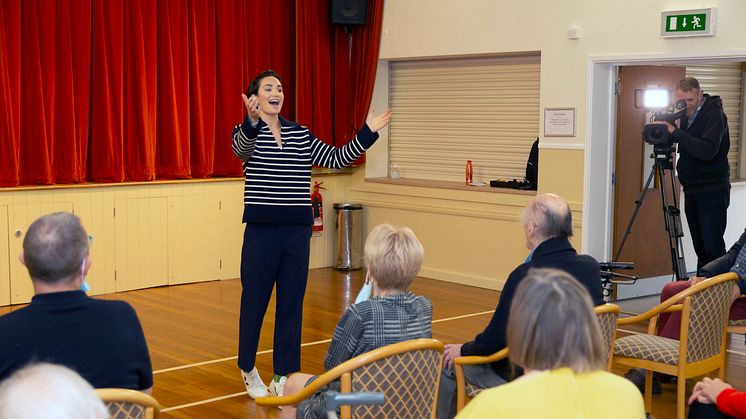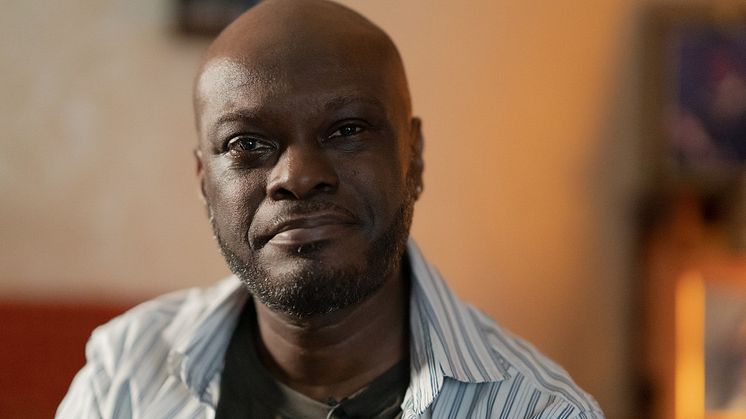
Press release -
Celebrated soprano hits the high notes to give Suffolk stroke survivors Hope After Stroke
A Suffolk soprano used to singing before capacity crowds at Wembley Stadium gave a group of stroke survivors a more intimate performance in the humble surroundings of Great Barton Church Hall.
Laura Wright led a singing therapy session for 40 stroke survivors and their carers in support of the Stroke Association’s Hope After Stroke campaign.
As well as enjoying to Laura’s beautiful tones, members of the Second Chance Stroke Group joined in with vocal exercises and songs.
Kathy Blythe, the charity’s associate director for the East of England, said: “Laura’s enthusiasm for music is infectious and we’re really grateful that she was able to join the group and prove that music really does have the power to raise the soul.
“The stroke survivors and their carers were thrilled to hear Laura’s gorgeous renditions of Jerusalem, Ave Maria and many other much-loved tunes.
“One gentleman remarked how touched he was that such a talented and famous singer had taken time out of her day to spend time with their group.”
Laura, who comes from Framlingham, has been a supporter of the charity for some time because her dad, Paul, had a stroke five years ago.
“The transformation you see when someone has a stroke, it can look so severe from an outsider’s perspective,” said Laura.
“To know that support is there from the Stroke Association is so important. I experienced my mum going through difficulty as she cared for him and I experienced that as his daughter. Seeing my dad change, that was hard.”
A survey by the charity found that over three quarters of people who have had strokes say that hope was essential in their recovery journey.
Kathy Blythe said: “Every five minutes, someone in the UK will have a stroke and in a flash, their life is changed. The physical impact of a stroke is severe, but for many, the emotional aspects of coming to terms with having a stroke are just as significant. Without hope, recovery can seem impossible.
“At the Stroke Association, we support and help people to find this hope, and rebuild their lives. But with 1.3m people and rising in the UK now living with the effects of a stroke, our services have never been more stretched. We urgently require the support of the public to help us continue to support stroke survivors to rebuild their lives.”
The Stroke Association is asking those who can to donate so that it can reach more stroke survivors and give them the specialist support they need to find hope and move forward with their recovery. Visit stroke.org.uk/hopeafterstroke
Topics
- Stroke strikes every five minutes in the UK and it changes lives in an instant.
- The Stroke Association is a charity working across the UK to support people to rebuild their lives after stroke. We believe that everyone deserves to live the best life they can after stroke. From local support services and groups, to online information and support, anyone affected by stroke can visit stroke.org.uk or call our dedicated Stroke Helpline on 0303 3033 100 to find out about support available locally.
- Our specialist support, research and campaigning are only possible with the courage and determination of the stroke community and the generosity of our supporters. With more donations and support, we can help rebuild even more lives.
- You can follow us on Twitter, Facebook and Instagram.



